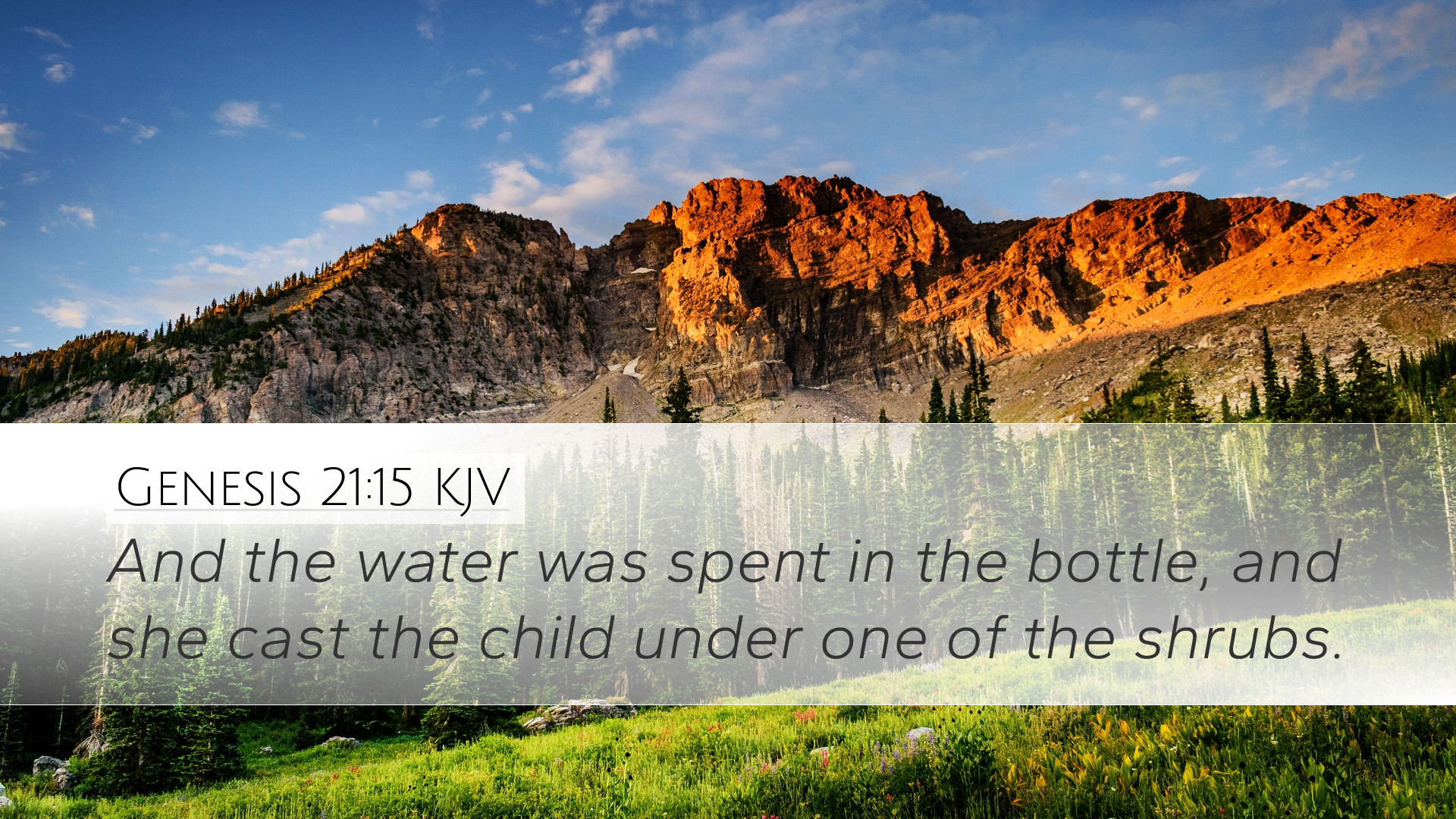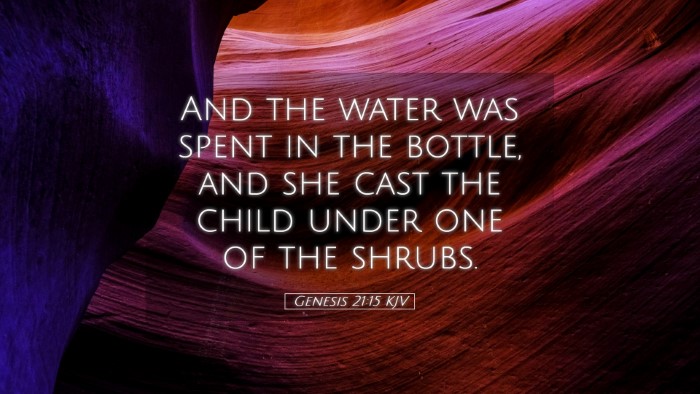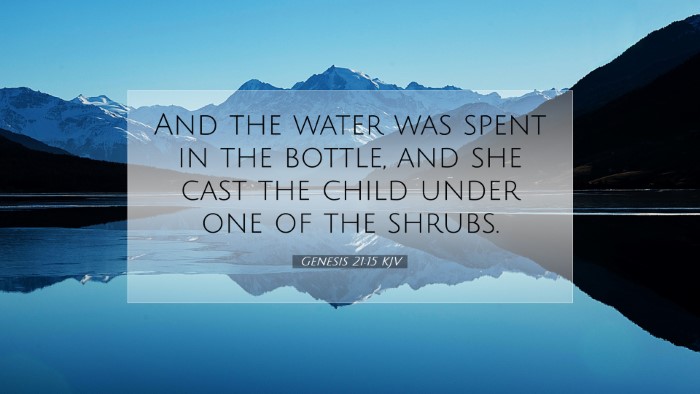Commentary on Genesis 21:15
Verse Context: Genesis 21:15 states, "And the water was spent in the bottle, and she cast the child under one of the shrubs." This verse is pivotal in the narrative of Hagar and Ishmael, reflecting themes of desperation, providence, and divine care.
Overview and Significance
This passage occurs in the context of Hagar and Abraham’s family dynamics after Isaac’s birth. Following the expulsion of Hagar and Ishmael, we see Hagar’s despair as the supplies run dry. This moment emphasizes Hagar’s vulnerability and the dire situation into which she finds herself, illuminating important theological themes.
Thematic Insights
- Desperation and Human Need: Hagar’s act of casting Ishmael under the shrub symbolizes a profound moment of despair. Matthew Henry emphasizes that her actions reflect a mother’s instinct to protect her child, even in the face of seemingly insurmountable circumstances.
- Theological Reflection on Divine Provision: Albert Barnes notes that the narrative underscores God's awareness of human distress. The empty bottle represents not just physical depletion, but also spiritual and emotional barrenness.
- God’s Care in Poverty: Adam Clarke highlights that even when all means are exhausted, God’s provision is often just beginning. The appearance of the angel post-crying serves as a reminder that divine intervention frequently comes at our lowest moments.
Detailed Commentary
Theological Implications of Hagar's Despair
Hagar's situation can be likened to many believers who find themselves in times of distress. As Henry notes, the emotional anguish of Hagar reflects how we often relate to God during our own crises. We may feel isolated and abandoned, yet this passage instructs us that God’s faithfulness is undeterred by human circumstances.
Water as a Symbol of Life
The water in the bottle is emblematic of sustenance and life. In the ancient Near Eastern context, water was essential for survival, and the depletion thereof signifies not just physical thirst but a spiritual thirst for hope and assurance. Clarke remarks that the absence of water is a fitting metaphor for spiritual desolation.
Divine Response and Compassion
As Hagar weeps for her son, it is crucial to recognize the duality of human despair and divine compassion. There is a marked contrast between Hagar's desperate plea and God's readiness to intervene. Barnes emphasizes that God’s recognition of Hagar’s plight signifies His continual care for the marginalized and suffering.
Angel of God’s Intervention
The appearance of the angel of God serves as a turning point in the narrative. The assurance provided by the angel is twofold; it affirms God’s promise to Abraham regarding Ishmael and signals God's providential oversight. It conveys that even in human abandonment, divine presence remains tangible, indicating that God's plans encompass not just the chosen family of Abraham but also the outcast.
Practical Applications for Ministry
For pastors and theologians, this passage embodies critical pastoral teaching points:
- God’s Presence in Crisis: Illustrate how God’s presence can manifest in our darkest times. Hagar's experience teaches that even when we feel abandoned, God is aware and present.
- Compassion towards the Marginalized: Encourage ministries to serve those who are often overlooked or cast aside, paralleling God’s provision for Hagar and Ishmael.
- Hope amidst Despair: This narrative can reassure congregants who are facing life’s challenges that God hears their cries and will respond with provision and guidance.
Conclusion
Genesis 21:15 serves as a poignant reminder of God’s compassion during times of human despair. The interplay of Hagar's suffering and God's response offers rich theological insights that illuminate the character of God as a compassionate provider. This narrative encourages believers, reminding them that, despite their circumstances, they are seen and cared for by God.


